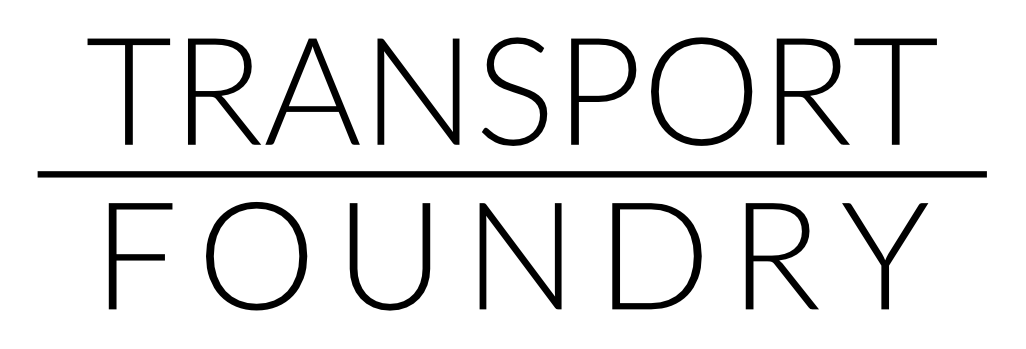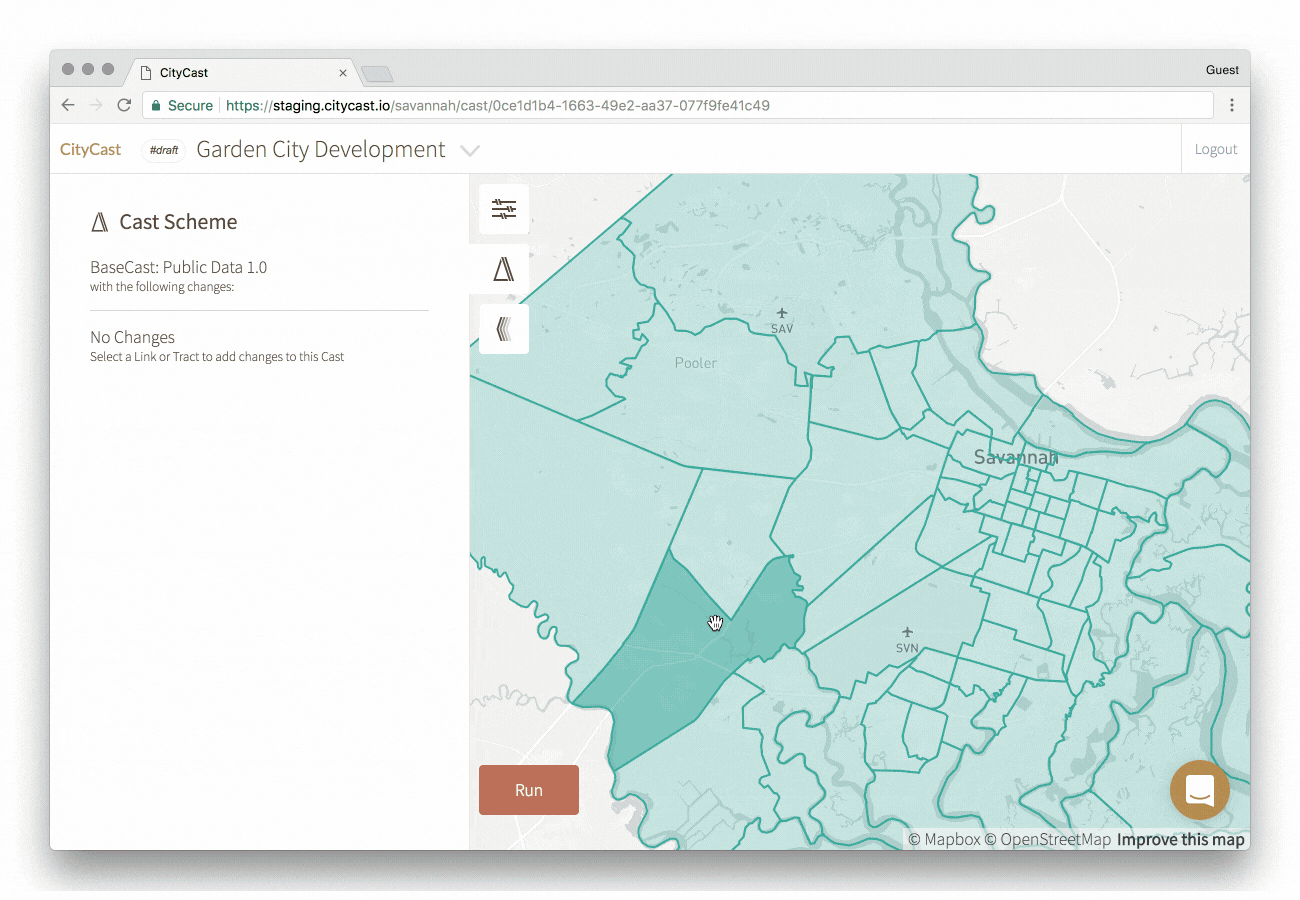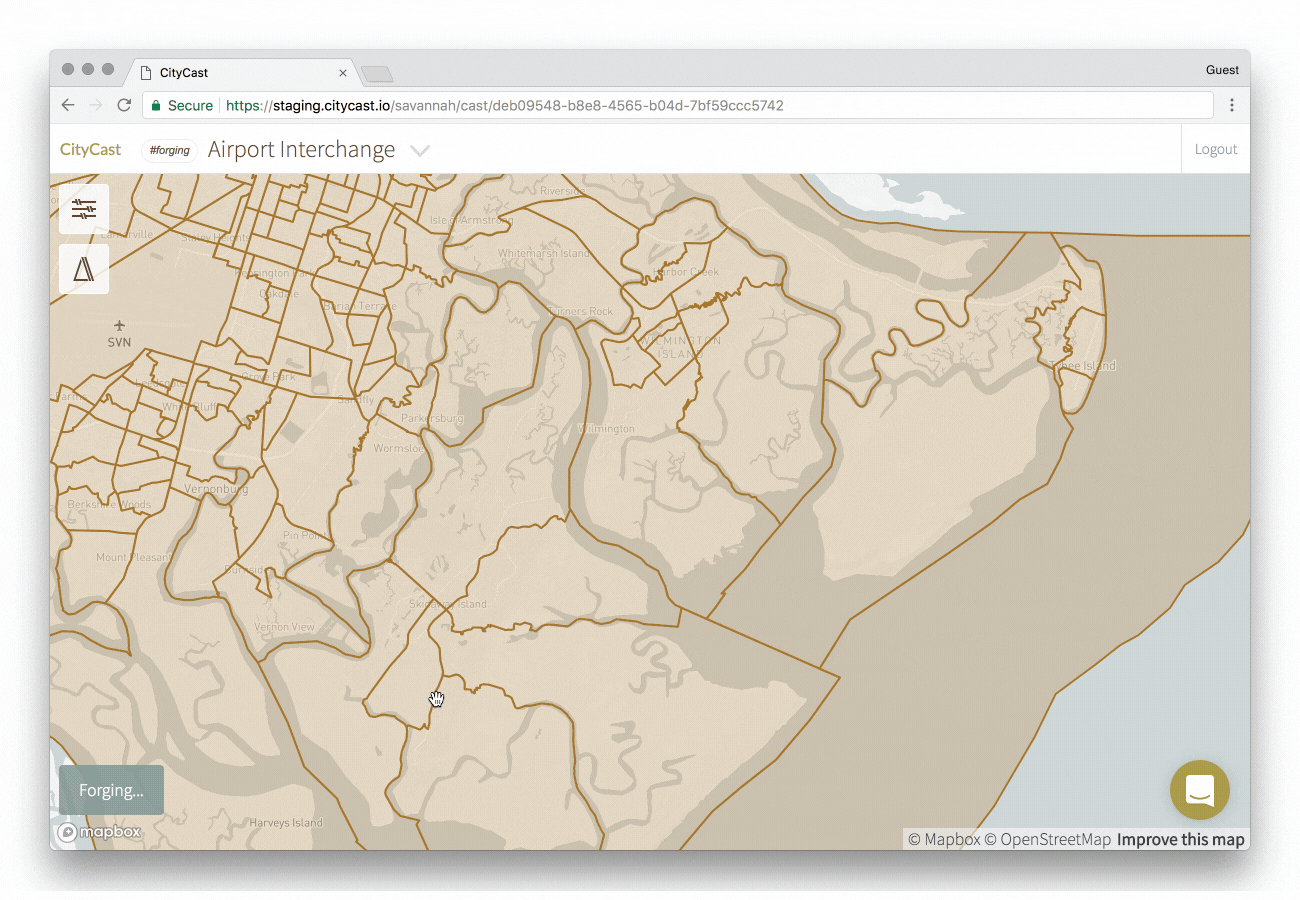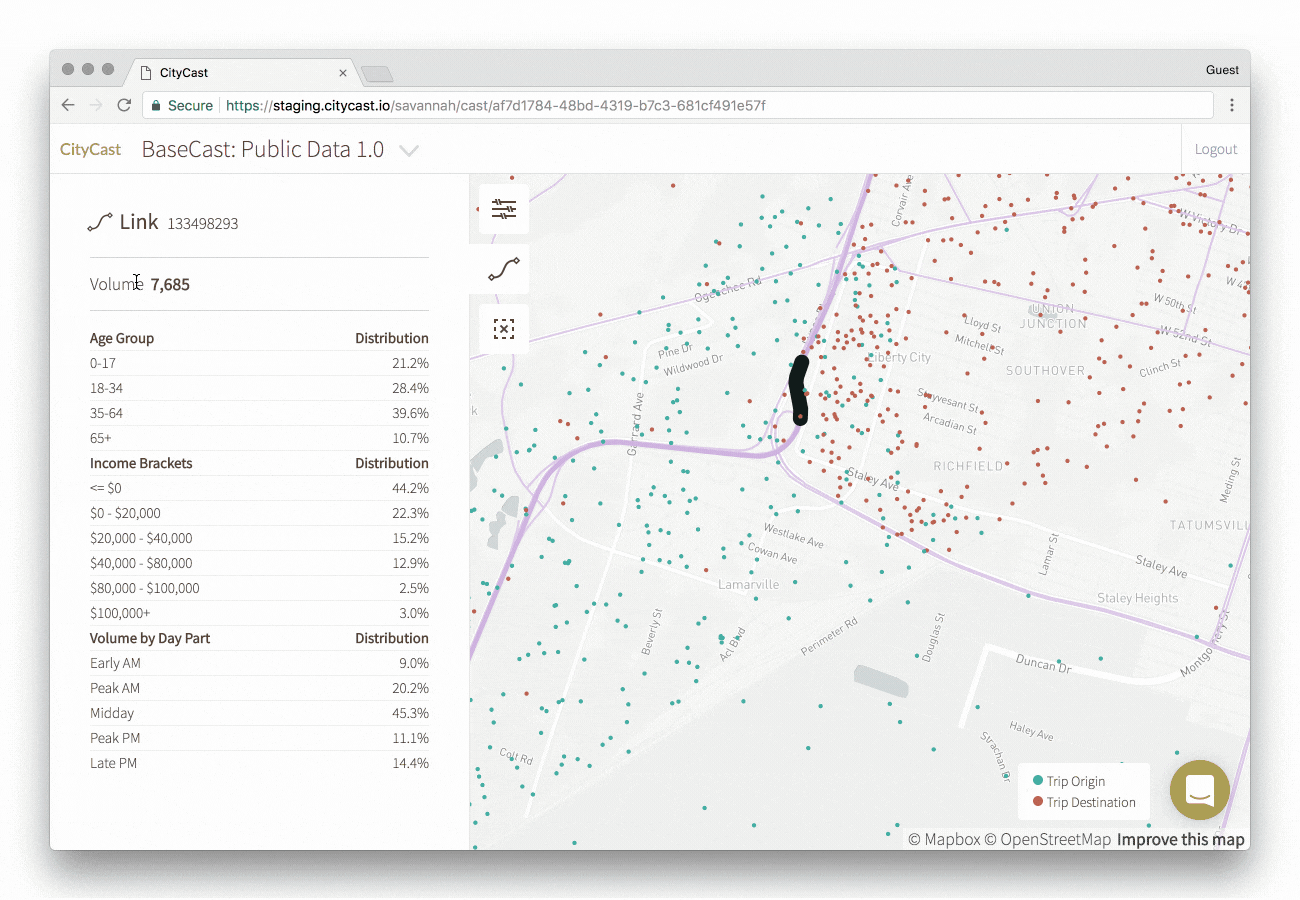CityCast Gets a Face
/Cities all over the world want to help people get around town in ways that are cheap, safe, efficient, and environmentally friendly. To do this, planners simulate near and distant future scenarios of population growth, land development, transportation technologies, and infrastructure.
At Transport Foundry, we’re excited to launch CityCast, an everyday tool for data-driven planning.
CityCast is a web-based travel demand modeling platform that helps planners test regions’ futures and see and share the impacts. The aim with CityCast is to make travel demand modeling more efficient, accessible, and user friendly.
In CityCast, planners can analyze present-day and future scenarios by looking at the outputs of a 24-hour simulation, which we call a Cast. A Cast simulates representative people moving between point-based households and businesses minute-by-minute on multimodal networks. Each Cast estimates demand and uses open source MATSim to dynamically assign routes and modes of travel that people choose.
A base year simulation that represents "today" is called a BaseCast, and CityCast is populated automatically with the most recent BaseCast available for each region on a continual basis. Because the model in CityCast is modular, BaseCasts can be informed by open public data sources or by private passively-collected data sources. The most recent BaseCast available depends on the data sources.
BaseCast: Public Data 1.0
Today we are rolling out the public data version of CityCast. Although public data have limitations because they are usually older, less detailed, and sometimes inaccurate, they do have the huge benefit of being open. Here is a list of the data used in this version of CityCast:
- 2010 Decennial Census (Census)
- 2012-2016 5-Year American Community Survey Public Use Microdata Sample (ACS PUMS)
- 2015 Longitudinal Employer-Household Dynamics Origin-Destination Employment Statistics Workplace Area Characteristics (LEHD LODES WAC)
- 2015 Longitudinal Employer-Household Dynamics Origin-Destination Employment Statistics Origin-Destination (LEHD LODES OD)
- 2009 National Household Travel Survey (NHTS)
- Open Street Maps (OSM)
- Local General Transit Feed Specification feeds (GTFS)
BaseCast: Passive Data 2018.Q1
The passive data version of CityCast will take advantage of household and business list databases, origin-destination matrices, and trusted network data. Our team is working hard to get the last agreements in place for the passive data version of CityCast to let it loose to users. Stay tuned.
Getting Started with CityCast
Draft a Cast
CityCast allows you to draft new scenarios quickly and easily. After selecting a Parent Cast from which to build your new Cast, you can change the number of households and jobs per zone, you can edit streets and transit service, or you can drop a new development at a specific point.
We have plans to incorporate user controls for specifying the advanced scenarios that CityCast Model is already built to run including autonomous vehicle and mobility as a service scenarios. In the meantime, our team at Transport Foundry can help you run these scenarios by using our chat app inside CityCast.
When everything is ready for your cast, push "Run" and we'll do the rest. Grab lunch if your region is on the smaller side, or come back later in the day if your region's population is in the multiple millions.
Analyze a Cast
We at Transport Foundry first built on-the-fly Select Link Analysis in CityCast. A Select Link Analysis allows users to look at a single link closely to see who is using the link, what their age, income, and other demographic characteristics are, where they are starting and ending their trips, and what paths they are taking between those points.
Join Us
We hope to contribute CityCast Model to the open source community, but we want to make sure it has a sustainable home here at Transport Foundry where it can continue to grow. We hope the CityCast platform will create that sustainable home, making it easy to use the Model with regular base year updates and a space for creating, running, analyzing, and sharing scenarios.
We are looking for cities of all shapes and sizes to collaborate with as we build CityCast. If you are interested, get in touch!
Related: Introducing CityCast



